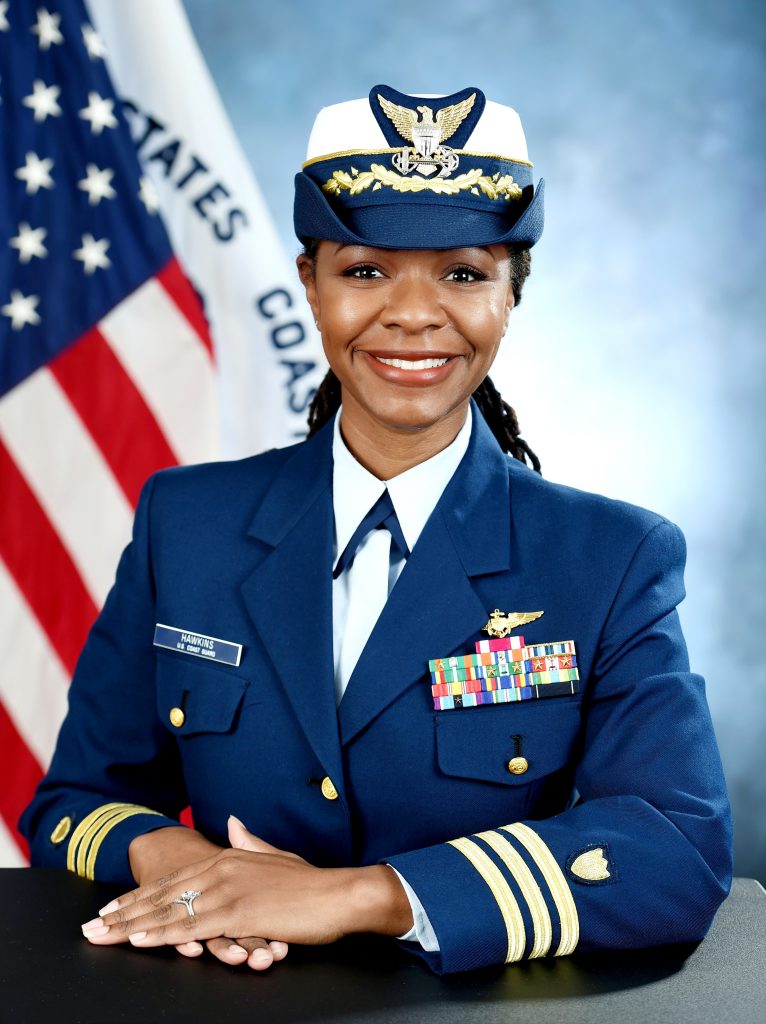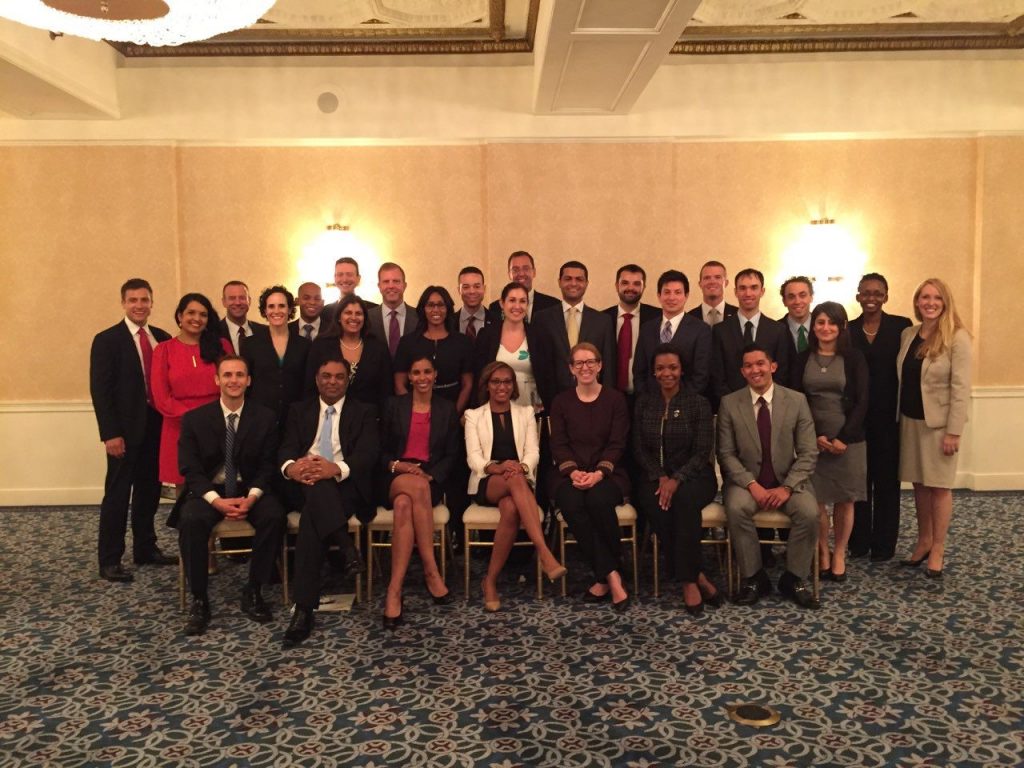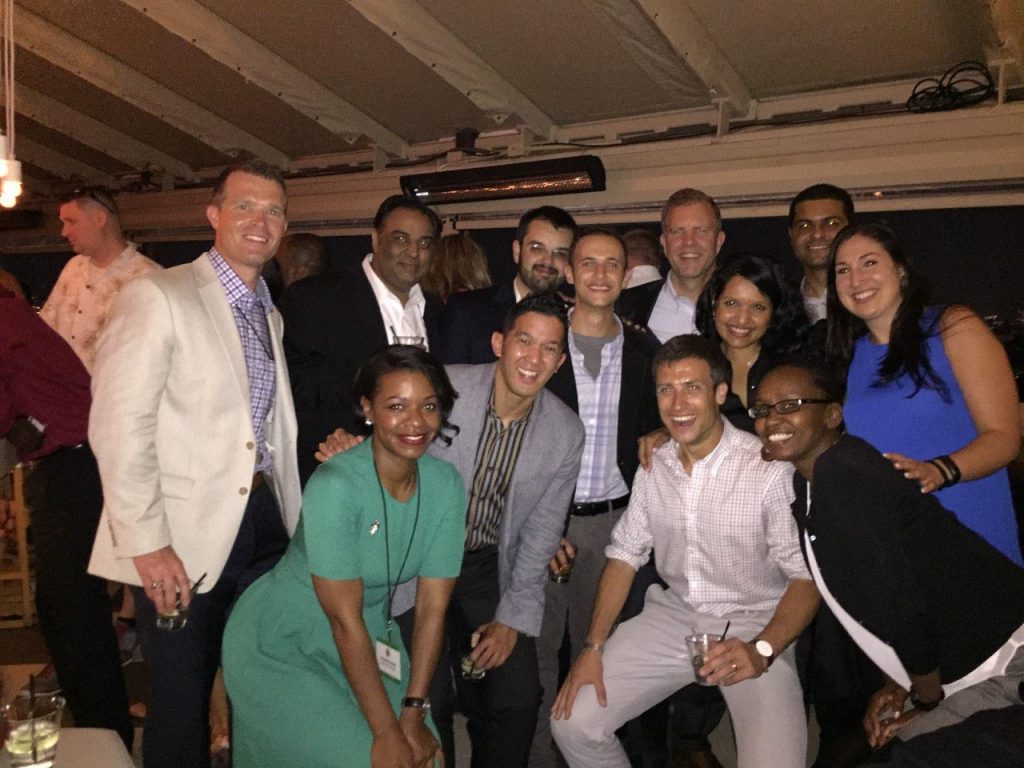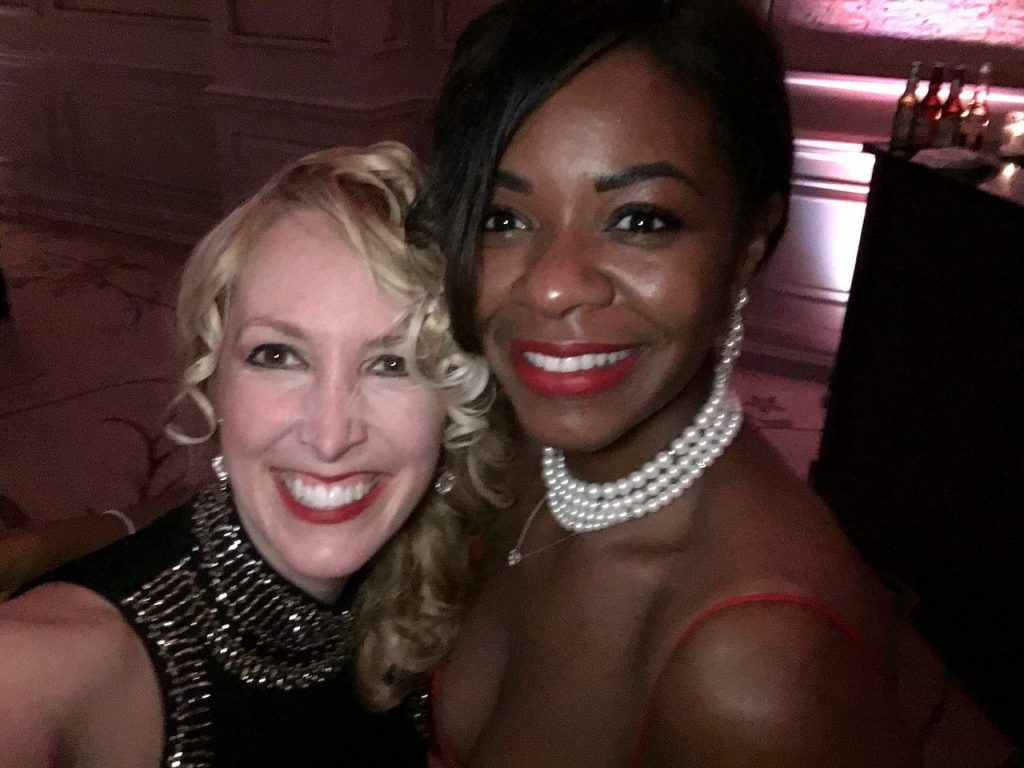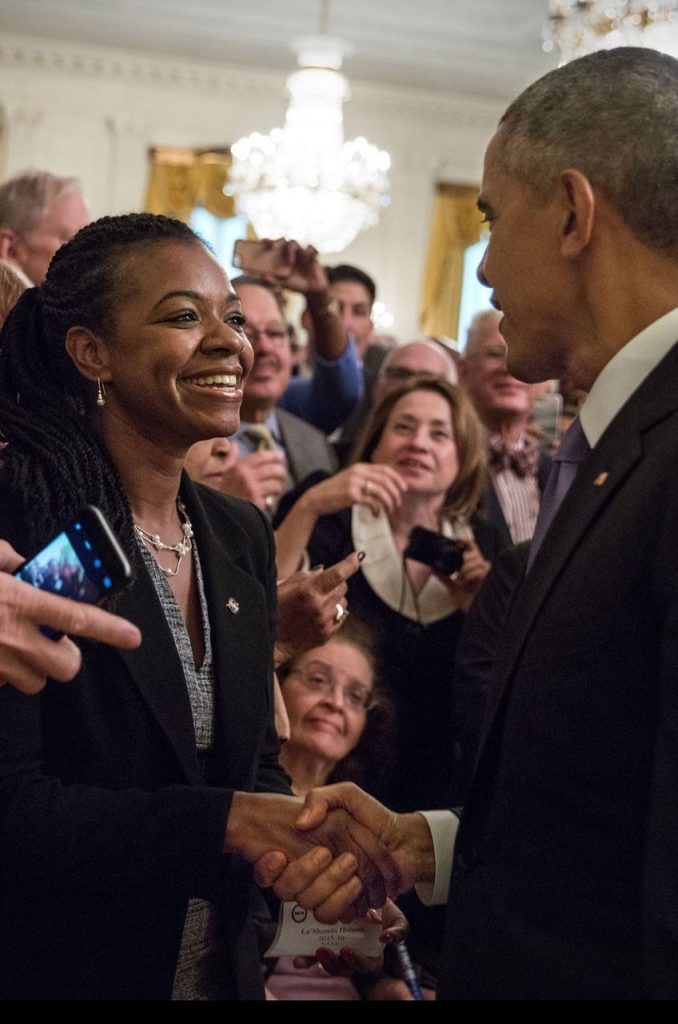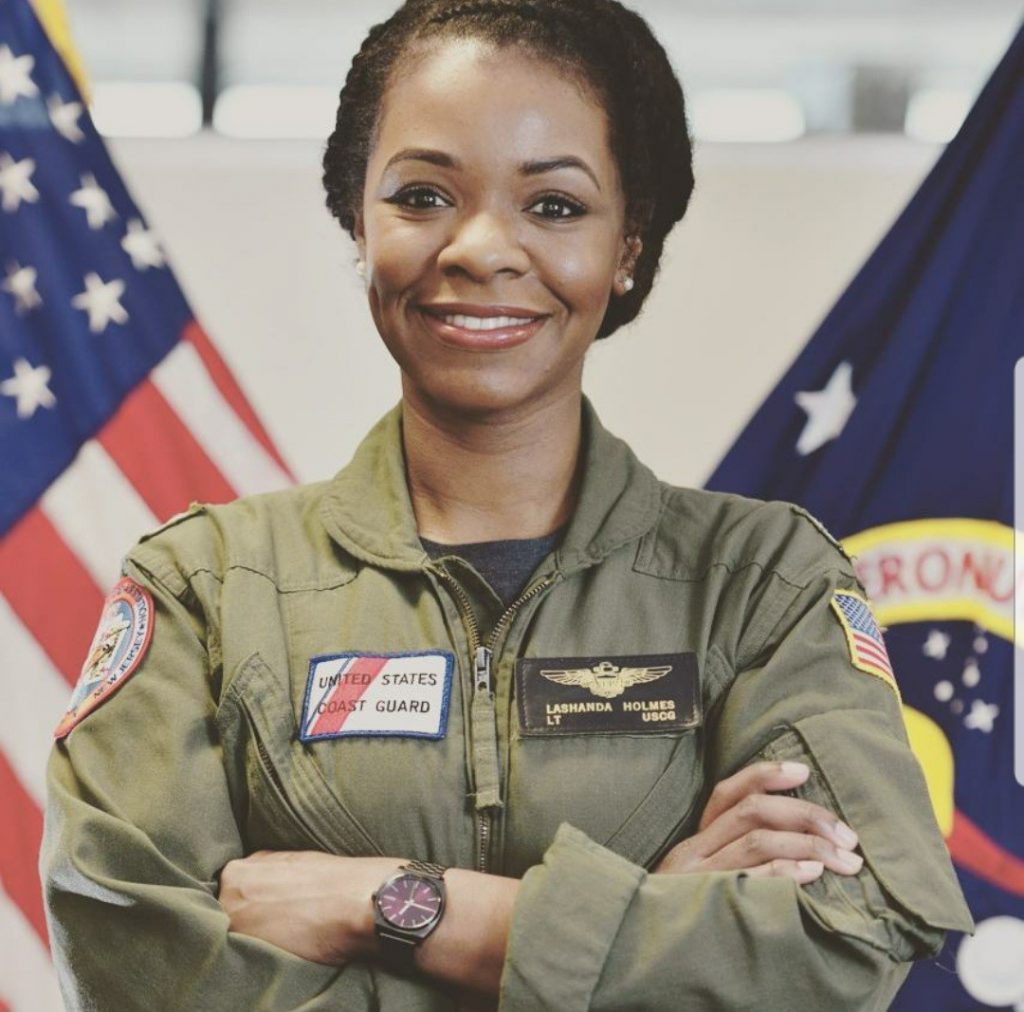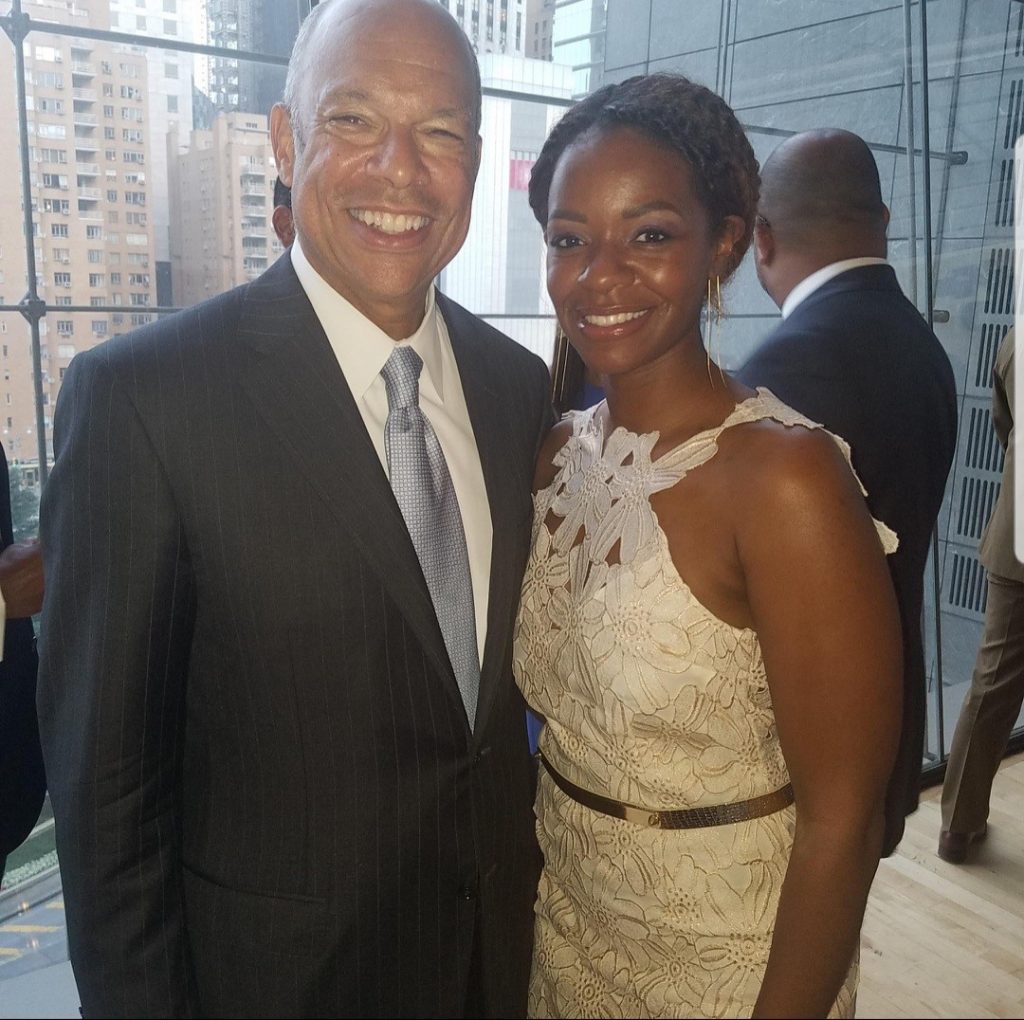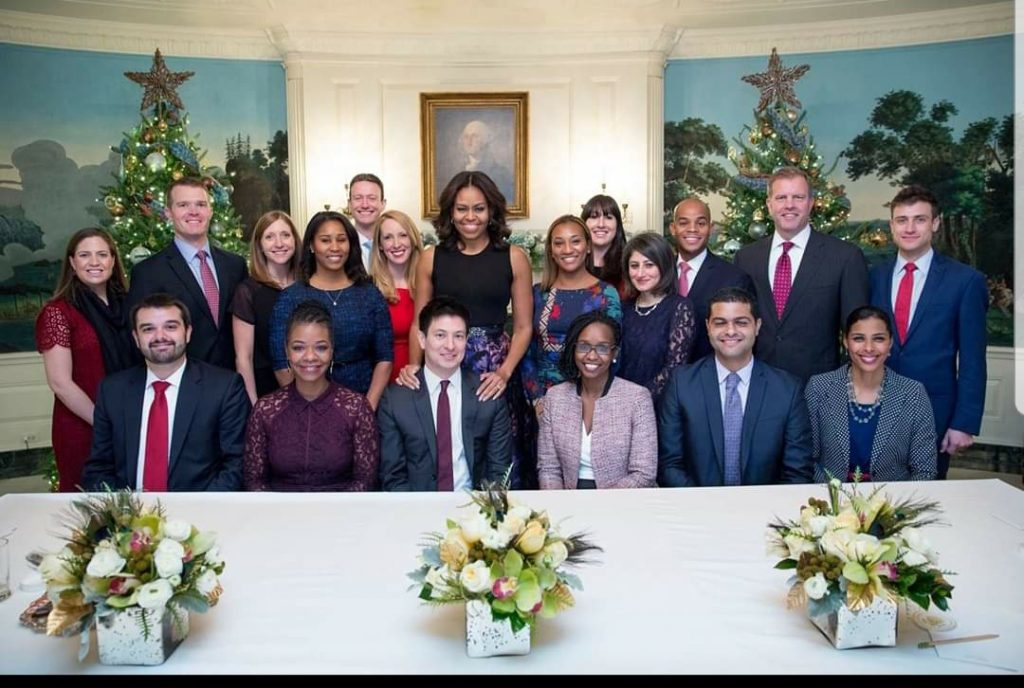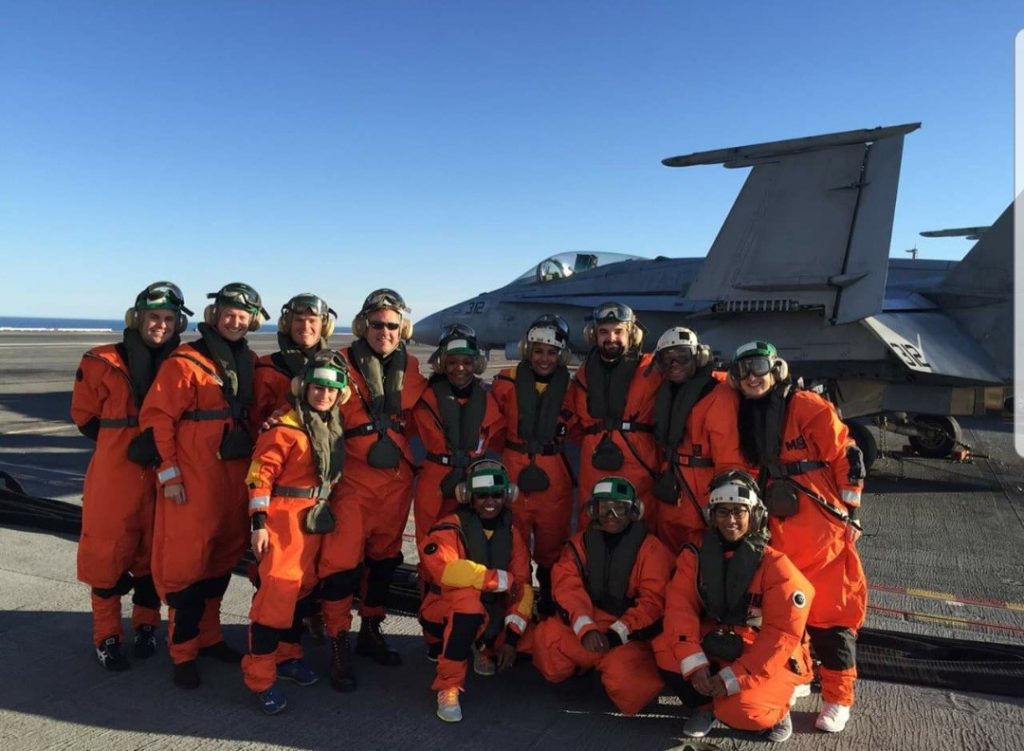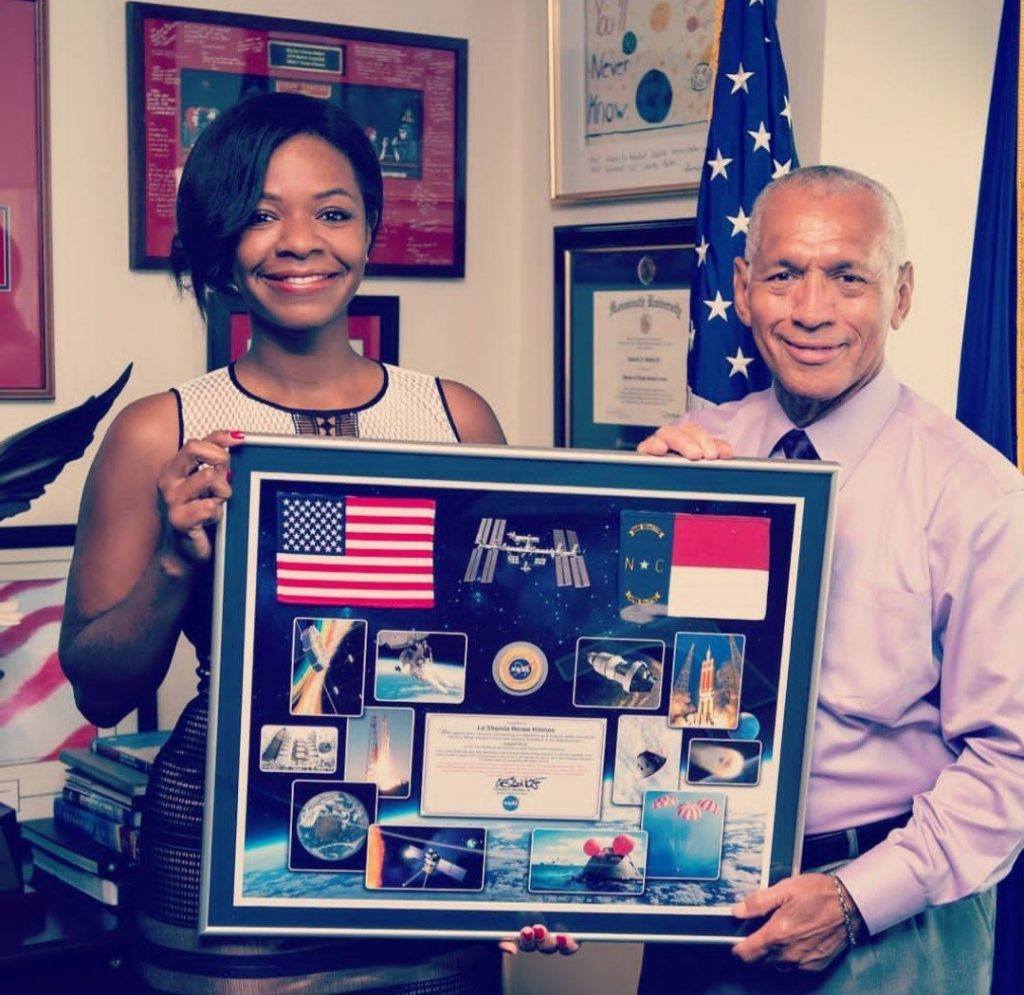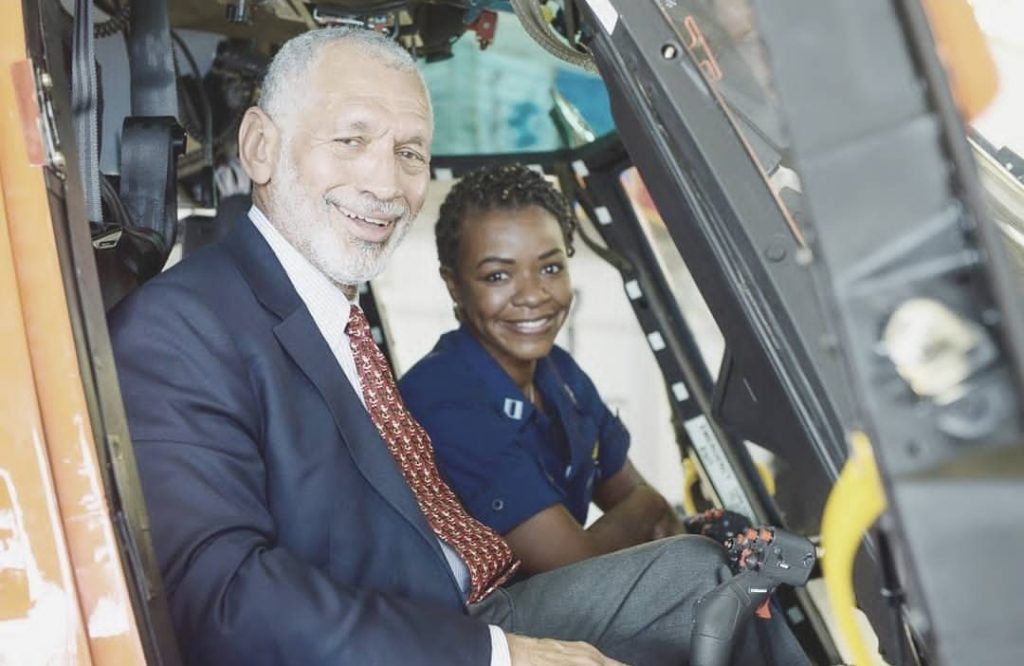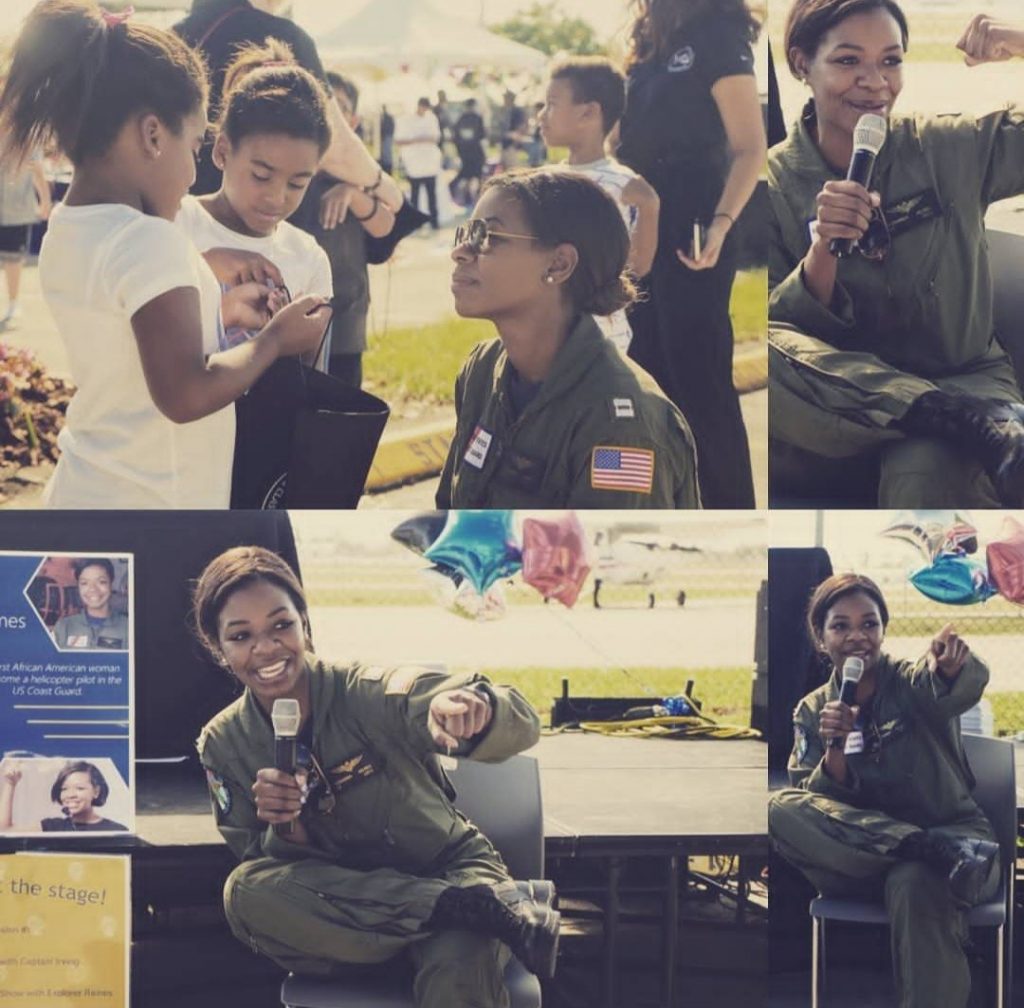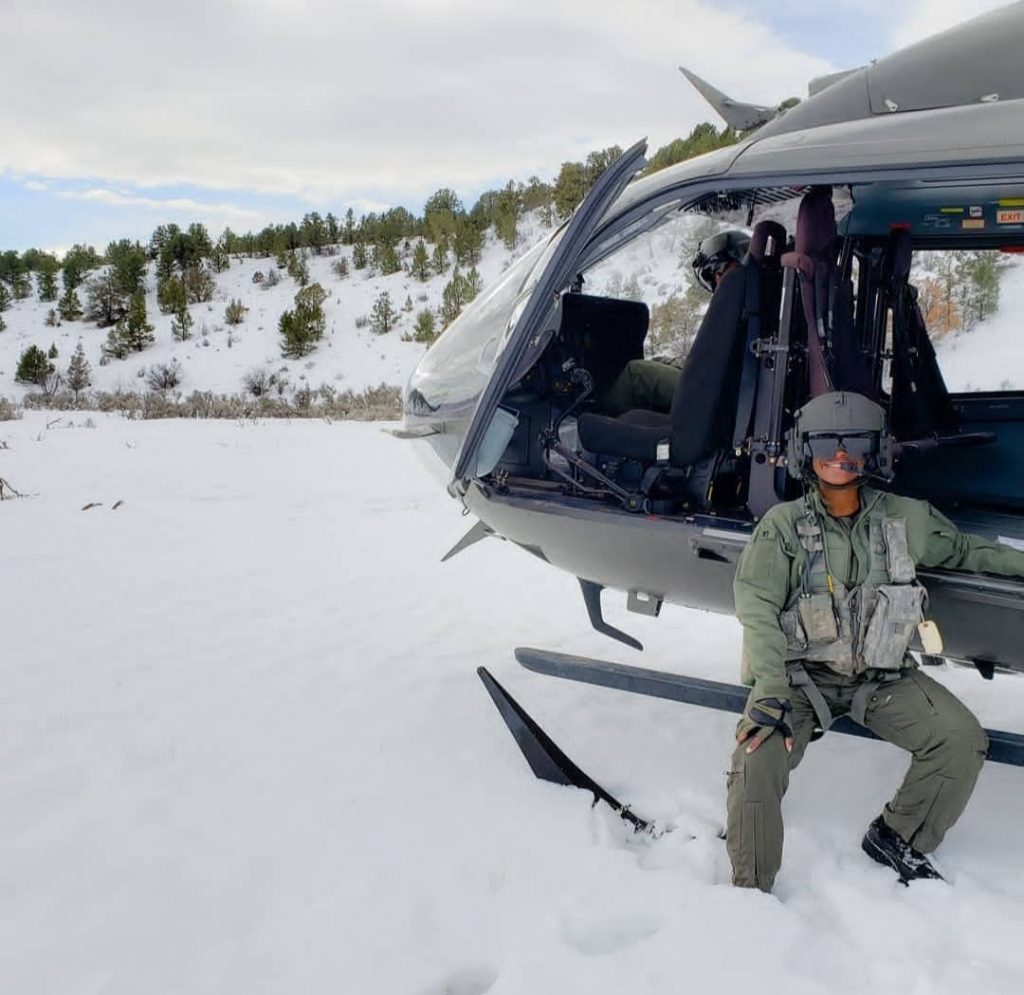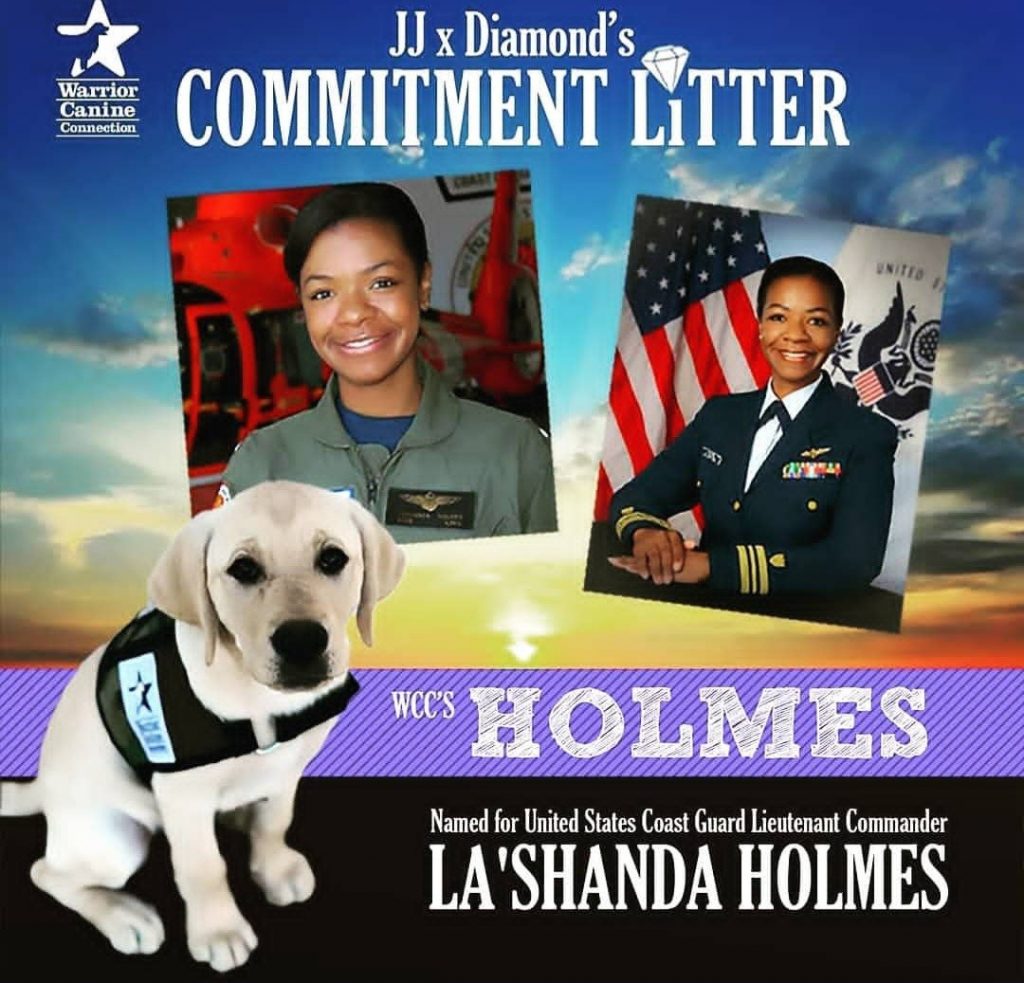WHF Profile: La’Shanda R. Hawkins (2015-16)
Can you tell us about yourself and your work before the White House Fellowship?
Prior to my White House Fellowship, I devoted over a decade to flying missions as a United States Coast Guard helicopter pilot, spanning Search and Rescue, Counter Narcotics, and Air Intercept operations. Additionally, I contributed to nonprofit boards aiming to establish STEM pathways for marginalized youth.
How did you hear about the White House Fellows Program and what made you decide to apply?
I learned about the White House Fellows program through a Coast Guard acquaintance who believed I’d excel in it. Amidst my second operational tour in Atlantic City, New Jersey, I seized the opportunity to apply, recognizing the timing was ideal. The program’s promise of challenging me, fostering professional growth, and offering unique experiences outside the Coast Guard motivated my application. With a longstanding passion for public service, I saw the fellowship as a platform to elevate my contributions, enabling me to serve at the highest echelons of government and witness leadership in action firsthand—an opportunity few encounter.
What goals were you hoping to achieve through the Fellows program?
My foremost objective as a White House Fellow was to glean insights into government operations and leadership strategies, all while leveraging my skills and expertise to contribute to impactful projects. Additionally, I recognized the invaluable opportunity to collaborate with a cohort of the nation’s top professionals, eager to absorb as much knowledge and experience from them as possible.
Where were you placed and what was the focus of your work?
At NASA, I had the privilege of serving directly under NASA Administrator General Charles Bolden, akin to a military aide position, to gain firsthand insights into senior leadership dynamics. Additionally, with the Administrator’s endorsement, I collaborated closely with NASA’s Science Mission Directorate and Human Space Flight Mission Directorate, broadening my understanding of agency operations.
What was your fellowship class like?
My fellowship class, comprising of accomplished young professionals from diverse backgrounds, facilitated enriching discussions and mutual learning, thanks to the varied perspectives and talents each member brought to the table. Notably, our class stood out as one of the most diverse in the WHF program’s history. From this experience, I forged lifelong friendships, underscoring the program’s profound impact on personal and professional connections.
What did you do immediately after the Fellowship?
Following the Fellowship, I resumed flying operational missions at Coast Guard Air Station Miami for four years. During this time, I had the privilege of saving over 20 lives at sea, serving as the Mission Commander for deployments into the Caribbean Sea, and successfully thwarting illegal drug runners and migrants posing threats to our borders.
How did the trajectory of your life and work change after the White House Fellowship?
The White House Fellowship was profoundly transformative, expanding my horizons and unlocking doors to diverse opportunities. It prepared me for leadership roles extending beyond the military, where I could affect significant change. Additionally, it empowered me to educate others about government leadership, crisis management, and local engagement, dispelling myths and offering firsthand perspectives. Notably, this experience propelled me to serve in the U.S. Senate, bridging my WHF insights with the highest strata of political leadership in the upper chamber.
What are you most proud of achieving since the fellowship?
Since the Fellowship, I am most proud of my continued dedication to service and my ability to leverage my experiences to effect positive change in both professional and community settings.
Can you tell us about peers and mentors who helped you on this path?
Throughout my journey, I’ve been fortunate to have supportive peers and mentors, including esteemed individuals from senior positions in the U.S. Coast Guard. Their guidance, encouragement, and invaluable insights have played a pivotal role in shaping my trajectory and assisting me in navigating challenges with confidence.
What are you working on now?
Currently, I serve as the Coast Guard Chief of Enlisted Evaluations, overseeing and managing the evaluations of over 50,000 service members. Additionally, I’ve played a pivotal role in the Coast Guard’s groundbreaking Talent Management Transformation. As one of six Team Leads, I conducted in-depth multi-month analyses, compiled a comprehensive catalog of functions and services within Recruiting, Civilian Hiring, and Accessions. This effort enabled a service-wide view of strategic imperatives, program-level expertise, and gained Commandant approval for key initiatives that the Coast Guard will implement over the next 3-5 years.
In addition to my professional duties, I remain dedicated to serving my local community and marginalized youth. I proudly serve as an advisor to Connect Our Kids, a non-profit organization utilizing technology to connect foster youth with supportive relatives, thereby fostering healthier relationships and brighter futures for these vulnerable individuals.
It sounds like all of those experiences gave you a set of new skills that you might not have had in your previous role. How did you translate those skills into your career and work now?
The skills and insights acquired during my White House Fellowship, particularly in strategic planning, stakeholder engagement, and relationship-building, have fortified my ability to thrive in varied professional settings and confront intricate challenges with assurance and adaptability.
Could you reflect on a learning experience during your Fellowship experience?
One significant learning experience during my Fellowship was the importance of adaptability and resilience in navigating dynamic and high-pressure environments. This lesson continues to resonate with me as I embrace new opportunities and confront unforeseen obstacles on my personal and professional journey.
Have you and your classmates remained close since your Fellowship year?
While our paths may have diverged after the Fellowship, many of us have maintained connections and continue to support each other professionally and personally. I speak to several fellow Fellows via group chat forums, email, texts, and one WHF couple lives just a few doors down from me!
What advice would you give to prospective applicants?
For prospective applicants, I encourage you to seize the opportunity to apply now and re-apply if necessary. Embrace the White House Fellowship with openness, curiosity, and a commitment to public service. Embrace the chance to learn, grow, and make a meaningful impact, while seeking guidance from mentors and peers. The profound impact of the White House Fellowship on my personal and professional development cannot be overstated. It reinforced my belief in the power of leadership, collaboration, and innovation to drive positive change. This program has transformed me in ways I never imagined, exposing me to a world of work vastly different from my military background. If given the chance, I would eagerly reapply today because the benefits are truly exceptional.
